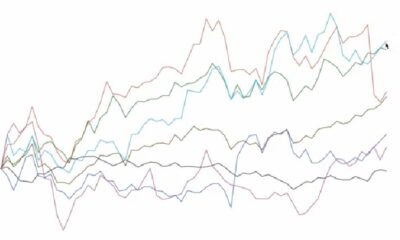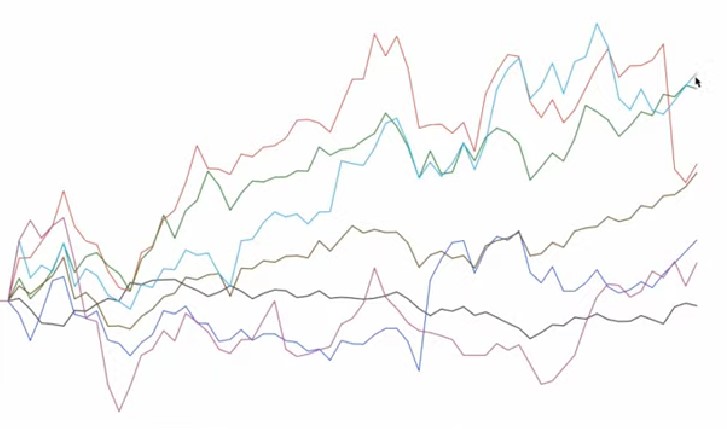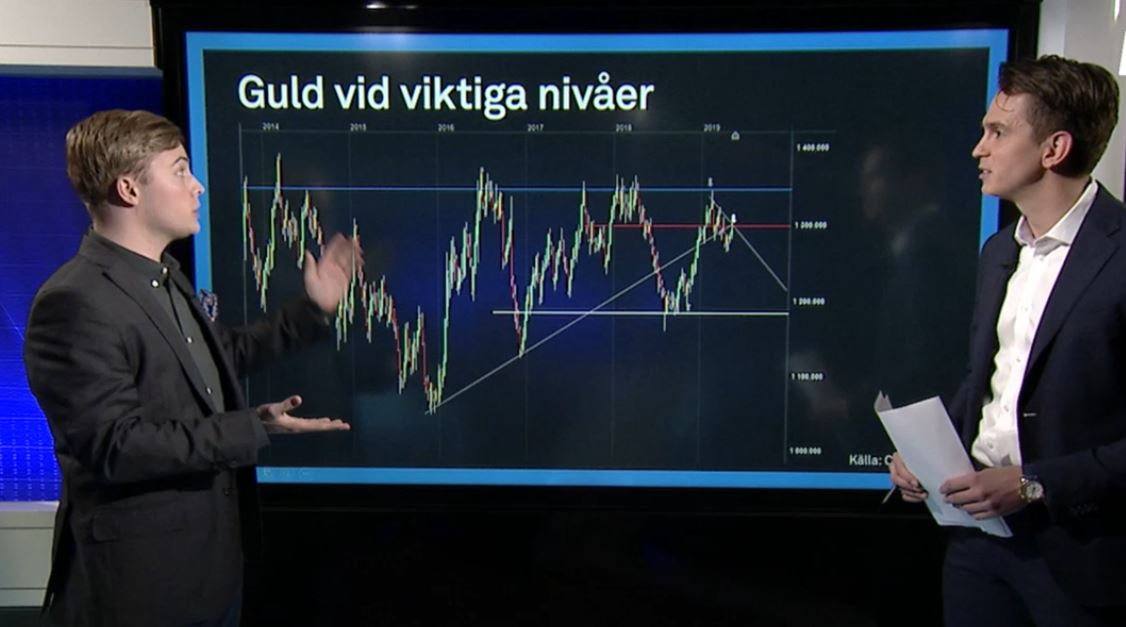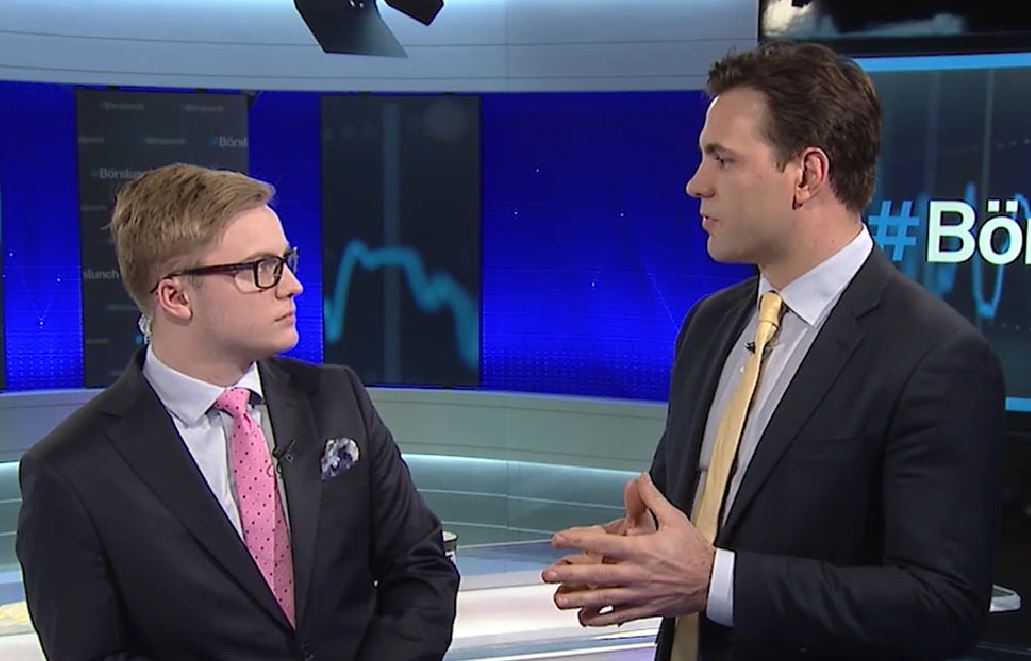Analys från DailyFX
Aussie Plunge Continues After Budget Release; EUR/USD Loses $1.3000
ASIA/EUROPE FOREX NEWS WRAP
The Dow Jones FXCM Dollar Index (Ticker: USDOLLAR) has exploded to fresh yearly highs, and its highest level since July 2010, as the stream of negativity from outside the United States continues, diverging from the increasingly optimistic view of the US economy. While early-Monday presented a day of consolidation for the greenback, the stronger than expected April sales report prompted market watchers and economists around the globe to raise their 2Q’13 GDP forecasts.
With momentum, firmly in the US Dollar’s favor, we’ve seen the GBPUSD break below significant technical support at $1.5350, the EURUSD fail to reclaim $1.3000, and the AUDUSD plummet towards $0.9900. With that said, the USDOLLAR is showing signs of exhaustion, with price overtaking the early-March highs but daily RSI failing to confirm. As such, despite the mounting bullish fundamental bias for the US Dollar, we have to respect the potential for near-term technical consolidations and/or reversals as profit taking occurs. Already, the USDJPY is seeing signs of this, having been rejected at ¥102.00 multiple times since the market opened this week.
The AUDUSD’s fall today was stoked by the government’s release of the 2013-14 federal budget. While the government expects deficit as a percentage of GDP to remain between 1.1% and 1.3% in the 2012-13 and the 2013-14 fiscal years, there were three items that prompted the sell-off (and confirming my rationale for shorting the AUDUSD last week). First, the government expected A$3.6B less in resource tax revenue in FY2012-13, a sign that the commodity supercycle may be finished. Second, the inflation forecast for the FY2012-13 was trimmed to +2.5% from +3.0%, and at +2.25% in FY2013-14 and FY2014-15. Finally, the government expects growth to slow from +3.0% in FY2012-13 to +2.5% in FY2013-14. These factors have accelerated AUDUSD selling and my 0.9850/900 target may be hit sooner than expected (mid-June).
Taking a look at European credit, slightly higher peripheral yields coupled with strong US Treasuries has cast a negative tone for the EURUSD for the day (risk off). The Italian 2-year note yield has increased to 1.354% (+1.0-bps) while the Spanish 2-year note yield has increased to 1.706% (+4.7-bps). Similarly, the Italian 10-year note yield has decreased to 3.952% (-2.1-bps) while the Spanish 10-year note yield has increased to 4.284% (+1.6-bps); higher yields imply lower prices.
RELATIVE PERFORMANCE (versus USD): 10:45 GMT
JPY: +0.16%
CHF: 0.00%
EUR: -0.13%
NZD:-0.13%
GBP:-0.16%
CAD:-0.23%
AUD:-0.34%
Dow Jones FXCM Dollar Index (Ticker: USDOLLAR): +0.15% (+1.70%past 5-days)
ECONOMIC CALENDAR

See the DailyFX Economic Calendar for a full list, timetable, and consensus forecasts for upcoming economic indicators. Want the forecasts to appear right on your charts? Download the DailyFX News App.
TECHNICAL ANALYSIS OUTLOOK

EURUSD: There’s a potential for a Bearish Key Reversal today (misplaced though) should price close below 1.2943, signaling a deeper pullback towards the 50% Fibonacci retracement off of the July 2012 low and February 2013 high at 1.2875/80. Price has been sustained below $1.3000, with the 200-DMA at 1.2985/90 serving as intraday resistance this week. Should price close below the late-April swing low at 1.2950/60, evidence for a break mounts.

USDJPY: No change: “I like USDJPY higher now that US data has started to improve, and a move above 99.95 would warrant a long entry in the pair for a quick move towards 102.00…The break of 99.95 has led to a sharp move up into the mid-101.00s, and at the time of writing, the pair had surged above 102.00 earlier today. With the Bullish Ascending Triangle in play and 102.00 reached, I’m now looking for a small pullback before the march towards 103.50 begins. I’m bullish and long from 99.95 and 100.19.”

GBPUSD:The GBPUSD slidehas continuedafter falling below the ascending channel support off of the March 12 and April 4 lows is at 1.5350/75. It is worth noting that the RSI uptrend that’s supported the rally since early-March has failed, additional failure below the 47 level (a floor in April) suggests that price could continue to fall towards 1.5200/20 before support is found.

AUDUSD: No change: “The AUDUSD continues to falter as market participants remain focused on the renewed easing cycle that the RBA has entered. Between the RBA’s rate cut on Tuesday and the decision to lower the 2013 growth and inflation forecasts on Friday, the AUDUSD has held below $1.0000 despite several attempts to reclaim the psychologically significant figure today. I’m bearish and short from 1.0150.”

SP 500: No change as a potential Bull Flag forms: “The headline index remains strong although there is some theoretical resistance coming up (this is unchartered territory, so forecasting price relies heavily on valuations, mathematical relationship, and pattern analysis). As first noted in mid-April, 1625 should be a big figure where sellers come in: channel resistance off of the February 25 and April 18 lows (drawn to the April 11 high) aligns neatly with the 100% Fibonacci extension off of the December 28 (fiscal cliff) and February 25 (Italian election) lows. It’s hard to be bearish risk right now, but it is worth noting that the divergence between price and RSI continues, suggesting that few new hands are coming into the market to support price (recent volume figures would agree).”

GOLD: No change: “Price has rebounded nicely following the dramatic sell-off in the beginning of April, yet remains contained by the crucial 61.8% Fibonacci retracement at 1485/90. This “Golden Ratio,” if achieved with a weekly close above, would suggest that a major bottom is in place, setting up for a rally back towards 1565/70 at a minimum. If the US Dollar turns around, however (as many of the techs are starting to point to), then Gold will have a difficult gaining momentum higher.”
— Written by Christopher Vecchio, Currency Analyst
To contact Christopher Vecchio, e-mail cvecchio@dailyfx.com
Follow him on Twitter at @CVecchioFX
To be added to Christopher’s e-mail distribution list, please fill out this form
Analys från DailyFX
EURUSD Weekly Technical Analysis: New Month, More Weakness
What’s inside:
- EURUSD broke the ‘neckline’ of a bearish ‘head-and-shoulders’ pattern, April trend-line
- Resistance in vicinity of 11825/80 likely to keep a lid on further strength
- Targeting the low to mid-11600s with more selling
Confidence is essential to successful trading, see this new guide – ’Building Confidence in Trading’.
Coming into last week we pointed out the likelihood of finally seeing a resolution of the range EURUSD had been stuck in for the past few weeks, and one of the outcomes we made note of as a possibility was for the triggering of a ’head-and-shoulders’ pattern. Indeed, we saw a break of the ’neckline’ along with a drop below the April trend-line. This led to decent selling before a minor bounce took shape during the latter part of last week.
Looking ahead to next week the euro is set up for further losses as the path of least resistance has turned lower. Looking to a capper on any further strength there is resistance in the 11825-11880 area (old support becomes new resistance). As long as the euro stays below this area a downward bias will remain firmly intact.
Looking lower towards support eyes will be on the August low at 11662 and the 2016 high of 11616, of which the latter just happens to align almost precisely with the measured move target of the ‘head-and-shoulders’ pattern (determined by subtracting the height of the pattern from the neckline).
Bottom line: Shorts look set to have the upperhand as a fresh month gets underway as long as the euro remains capped by resistance. On weakness, we’ll be watching how the euro responds to a drop into support levels.
For a longer-term outlook on EURUSD, check out the just released Q4 Forecast.
EURUSD: Daily
—Written by Paul Robinson, Market Analyst
You can receive Paul’s analysis directly via email bysigning up here.
You can follow Paul on Twitter at@PaulRobinonFX.
Analys från DailyFX
Euro Bias Mixed Heading into October, Q4’17

Why and how do we use IG Client Sentiment in trading? See our guide and real-time data.
EURUSD: Retail trader data shows 37.3% of traders are net-long with the ratio of traders short to long at 1.68 to 1. In fact, traders have remained net-short since Apr 18 when EURUSD traded near 1.07831; price has moved 9.6% higher since then. The number of traders net-long is 15.4% lower than yesterday and 16.4% higher from last week, while the number of traders net-short is 0.4% higher than yesterday and 10.5% lower from last week.
We typically take a contrarian view to crowd sentiment, and the fact traders are net-short suggests EURUSD prices may continue to rise. Positioning is more net-short than yesterday but less net-short from last week. The combination of current sentiment and recent changes gives us a further mixed EURUSD trading bias.
— Written by Christopher Vecchio, CFA, Senior Currency Strategist
To contact Christopher Vecchio, e-mail cvecchio@dailyfx.com
Follow him on Twitter at @CVecchioFX
To be added to Christopher’s e-mail distribution list, please fill out this form
Analys från DailyFX
British Pound Reversal Potential Persists Heading into New Quarter

Why and how do we use IG Client Sentiment in trading? See our guide and real-time data.
GBPUSD: Retail trader data shows 38.2% of traders are net-long with the ratio of traders short to long at 1.62 to 1. In fact, traders have remained net-short since Sep 05 when GBPUSD traded near 1.29615; price has moved 3.4% higher since then. The number of traders net-long is 0.1% higher than yesterday and 13.4% higher from last week, while the number of traders net-short is 10.6% lower than yesterday and 18.3% lower from last week.
We typically take a contrarian view to crowd sentiment, and the fact traders are net-short suggests GBPUSD prices may continue to rise. Yet traders are less net-short than yesterday and compared with last week. Recent changes in sentiment warn that the current GBPUSD price trend may soon reverse lower despite the fact traders remain net-short.
— Written by Christopher Vecchio, CFA, Senior Currency Strategist
To contact Christopher Vecchio, e-mail cvecchio@dailyfx.com
Follow him on Twitter at @CVecchioFX
To be added to Christopher’s e-mail distribution list, please fill out this form
-
Analys från DailyFX10 år ago
EUR/USD Flirts with Monthly Close Under 30 Year Trendline
-

 Marknadsnyheter2 år ago
Marknadsnyheter2 år agoUpptäck de bästa verktygen för att analysera Bitcoin!
-
Marknadsnyheter5 år ago
BrainCool AB (publ): erhåller bidrag (grant) om 0,9 MSEK från Vinnova för bolagets projekt inom behandling av covid-19 patienter med hög feber
-
Analys från DailyFX12 år ago
Japanese Yen Breakout or Fakeout? ZAR/JPY May Provide the Answer
-

 Marknadsnyheter2 år ago
Marknadsnyheter2 år agoDärför föredrar svenska spelare att spela via mobiltelefonen
-
Analys från DailyFX12 år ago
Price & Time: Key Levels to Watch in the Aftermath of NFP
-
Analys från DailyFX8 år ago
Gold Prices Falter at Resistance: Is the Bullish Run Finished?
-

 Nyheter7 år ago
Nyheter7 år agoTeknisk analys med Martin Hallström och Nils Brobacke










